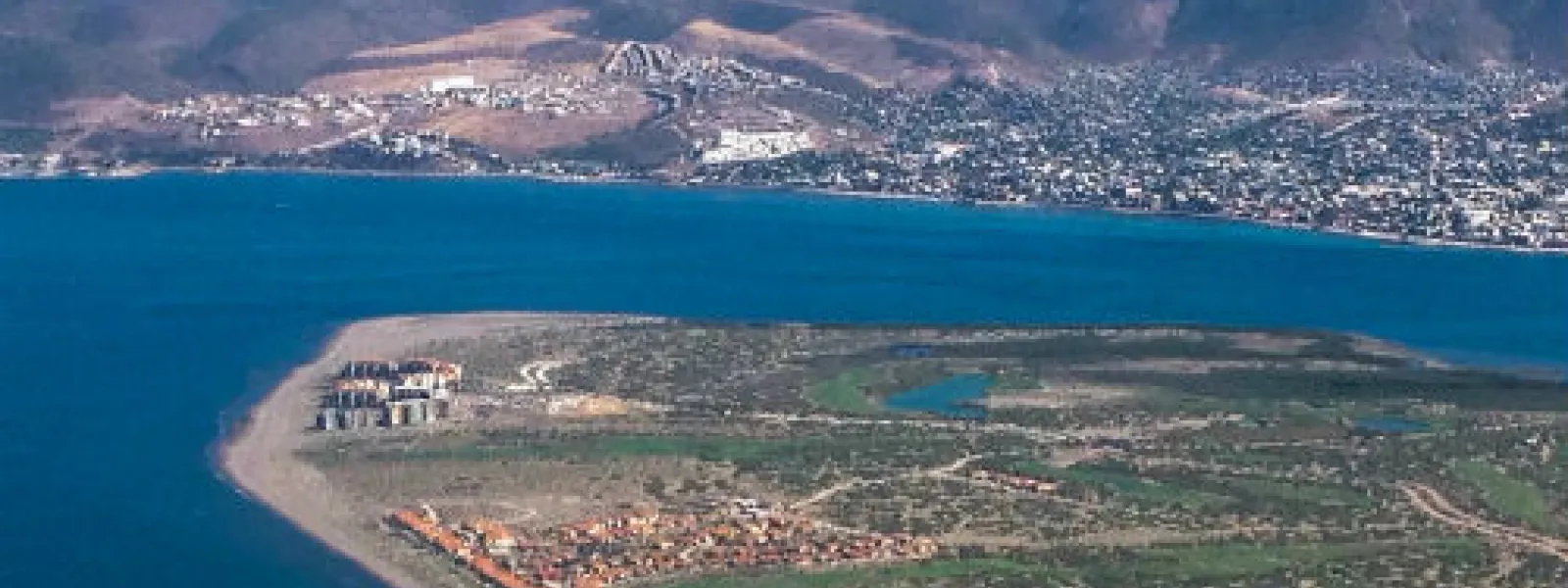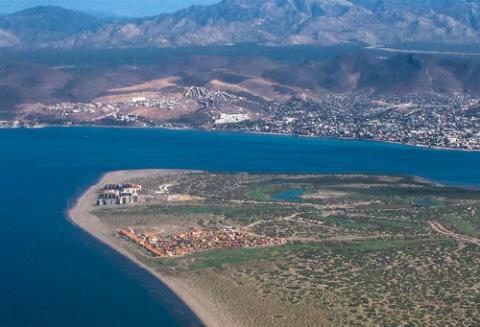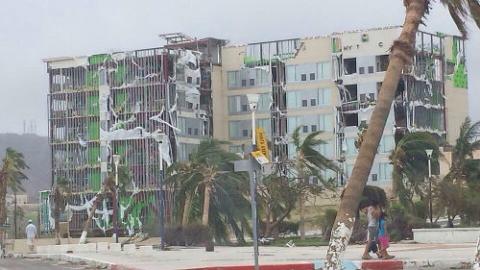
Mexico has an opportunity to protect its environment
By Sandra Moguel, AIDA attorney, @sandra_moguel
The pirinola is a traditional Mexican die with six flat sides, each of which carries an instruction, used in various countries in Latin America to play games and make bets. After being spun, the pirinola stops on one of its sides and shows the player what he must do with the chips he has: GIVE 1, GIVE 2, TAKE 1, TAKE 2, GIVE ALL, TAKE ALL.

As a country, Mexico goes through moments of collective despondency, when all seems lost. But it isn't. As in a game with the pirinola, there is always hope with another spin. In terms of the protection of its environment, Mexico still has an opportunity to correctly decide the fate of their natural heritage and to pursue sustainable development.
GIVE ALL: The Uncomfortable Story of Paraíso del Mar
Paraíso del Mar is a tourism project on the barrier sand bar known as El Mogote, in the Bay of La Paz, Baja California Sur. Project developers have proposed construction of a major resort with 2,050 hotel rooms, 4,000 homes, golf courses, and a marina.
In early 2013, a Mexican court ruled definitively that the environmental permit the Secretariat of Environment and Natural Resources (SEMARNAT) had authorized for the project was illegal. The ruling held that SEMARNAT did not enforce environmental laws requiring evaluation of the environmental impact of Paraíso del Mar.
However, before the ruling, some parts of the project had already been constructed. As a result, mangroves in the area have disappeared almost entirely, and the scenery and coastline have been modified.
With an authorization of environmental impact that is both irresponsible and illegal, everyone loses: Just think of the destruction that happened when Hurricane Odile hit Los Cabos last year. Aspects of climate change and extreme weather events should also be considered when evaluating tourism projects in this region. In this case, they were not. Who will compensate the businesses that have invested in the project? Who will repair the damages? Who will restore the landscape? Society as a whole has been affected.

An Environmental Impact Assessment reviews the effects of human activities on the environment. Its objective is to identify whether the effects on ecosystems can be mitigated or compensated for. Unfortunately, the laws that regulate the manner in which the environmental authority performs these assessments seem like a pretense, and assessment becomes a mere formality, which ends up harming both society and the biodiversity zones.
TAKE 1: Contributing to a Solution
The Interamerican Association for Environmental Defense (AIDA) and our partner organization Earthjustice, representing organizations from civil society, have presented a citizen submission to the Commission on Environmental Cooperation (CEC). The Commission is an international organization created under the North American Agreement on Environmental Cooperation, formed between Mexico, Canada, and the United States. Our petition asks the Commission to open an investigation into the authorizations of Paraíso del Mar and other similar projects in the Gulf of California.
The petition states that the Mexican government failed to enforce its environmental laws when it didn’t assess the environmental impact of projects in coastal wetlands of the Gulf. The CEC Secretariat recommended the development of a factual record (a detailed investigation) last September.

GIVE 2: The Decision Depends on at Least Two Governments
In the coming days, at least two of the three environment ministers of the United States, Canada, and Mexico must vote in favor of carrying out such an investigation. This vote is an opportunity to promote transparency and public participation in environmental issues. It’s the perfect occasion for the Mexican government to establish credibility, trust, and the opportunity for dialogue that citizens are clamoring for.
A factual record does not contain a rating on the arguments of the petitioners, nor does it contain recommendations from the Commission to resolve the problem. It is, rather, a detailed examination that becomes a source of feedback for SEMARNAT about the concerns of civil society.
It is noteworthy that of the 41 citizen petitions that have been filed against Mexico with the Commission, 19 have to do with the Environmental Impact Assessment. This means that citizens are questioning the discretion with which this tool is used, and how the environmental impacts of these projects are being determined.
TAKE ALL: What Can We Conclude?
Echoing the observation of Paola Zavala, social movements must be accompanied by an agenda of specific needs that are shared by members of civil society. More than a chance to scream and let off steam in the streets, such movements are forums for constructive citizen participation.
In the case of the Gulf of California, the petitioners, supported by civil society organizations and academics, demand that SEMARNAT implement environmental laws. It should approve projects based on the best available descriptions of work to be completed, which outline the total cumulative and residual impacts of the project. Such projects should in no way violate international treaties or norms on threatened species or on the protection of the mangroves.
The factual record is not a panacea for Mexico’s environmental woes. But if it generates awareness and an agenda for dialogue between public officials, business people, and civil society about the importance of the Environmental Impact Assessment, it will be a major step on the road to decision-making that guarantees sustainable development in Mexico.
Sandra Moguel

Sandra Moguel is Mexican and was an attorney with AIDA's Ecosystems Program. She is a graduate of the National Autonomous University of Mexico and holds a Master's degree in Environmental Law from the University of Auckland, New Zealand. Sandra has more than 15 years of experience in environmental research and litigation, primarily in wetlands and fisheries protection issues in both civil society organizations and the public sector.
